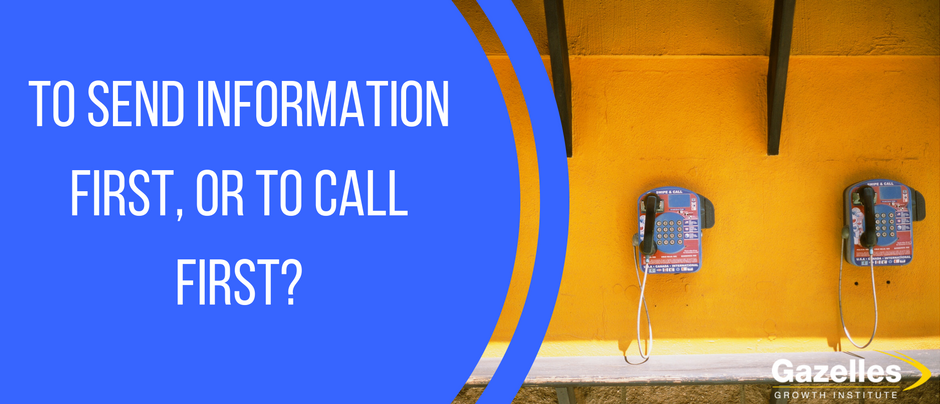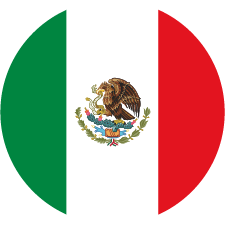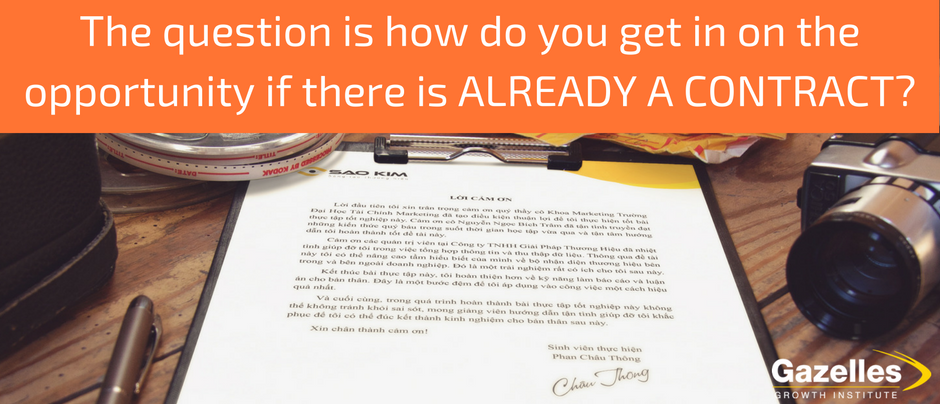Send more information? Did I just get blown off?

Many business owners and salespeople express frustration, even exasperation, when they reach prospects on the phone only to find the conversation cut short by the decision maker’s request to, “ send more information ”. I’ve heard stories of sellers who hang up and never send the information because they think so strongly that this is a “blow off”.
That’s a big mistake and a potentially big missed opportunity.
Think about the situation from your prospect’s point of view (which, by the way, is the ONLY point of view that matters in sales).
Some decision makers like to have something to review for confirmation that your company has what they need. Others may need more than one point of contact with you before they are ready to have a more detailed and open conversation.
This is part of the process, building trust.
While yes, some use it to get you off the phone (known as the “blow off”). There is no way to know which is which. If you assume it’s a “blow off” when the prospect really just wanted to see that your company is as professional as you sound, you may miss a valuable opportunity. Therefore you must let the scenario play out.
Give the prospect the benefit of the doubt. In fact, if you were your prospect you might behave in the very same way.
Having said that, there is a way that you can get the meeting now, on this phone call or in this networking meeting, and bypass the send more information request.
Try this...
Your answer:
“I can do that. But, there are specific examples of our work that are important for you to see based on what you just told me. I’ll bring the information with me. How’s Thursday at 10?”
If, after this, the prospect still says, “ Send more information ”…
Your answer:
“No problem, I’ll do exactly that. What is your e-mail address?” (Repeat it back for accuracy).
You can also ask:
“Just so I can include the most relevant examples of our work, what are some of your upcoming needs for ________ (fill in with what you sell)?” Or: “What kinds of programs have you done in the past?”
In addition to providing you with valuable insight into the prospect’s needs, it can also springboard a conversation about a particular need that may justify requesting a meeting now, on this phone call, even though the prospect insisted on information first.
To e-mail, or not to e-mail?
This is a question I often get. I suggest send more information via e-mail over snail mail for the following reasons.
- You now have permission to communicate using this vehicle.
- Most decision makers are very responsive to e-mail as long as there is contact first. (Unsolicited e-mail is the equivalent of spam.)
- The contact and follow up will occur in less time.
To send more information first, or to call first?
This is another question I often get. As I mentioned above, unsolicited e-mail or hardcopy mail is the same as spam. In most cases, when you call to follow up, the prospect will tell you he/she never saw the information you sent.
Think about when you are at your desk, busy, opening the mail. If you come across something you didn’t request, it will most likely land quickly in the trash if for no other reason than to clean off your desk.
Some people feel more comfortable making the initial call if they have the ability to say, “I’m following up on the information I sent.” If you do, you do. Just recognize that you will be wasting valuable time and money in the process.
A few years ago, I did a new business development effort for a client who had a beautiful brochure. She said it cost $12 to print and $3 to mail ($15 not including the time to write the cover note and get the packet ready to mail).
She sent it ahead of making the initial phone call. When she called to follow up, prospects typically told her that they had not seen the information and to please resend. Not only did she spend another $15 to resend, she also misused the conversation to discuss sent materials as opposed to the strategic fit of her service offerings for the prospect’s needs and to request a meeting.
What a waste!
Time on the phone with a prospect should be considered the equivalent of valuable real estate. Use it wisely; it is very hard to come by…



